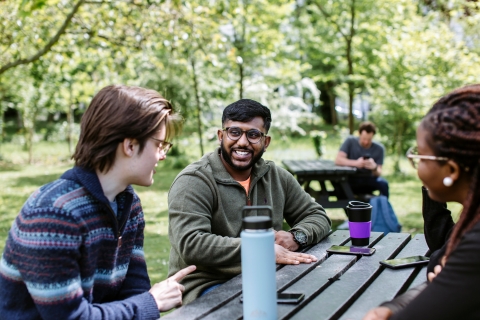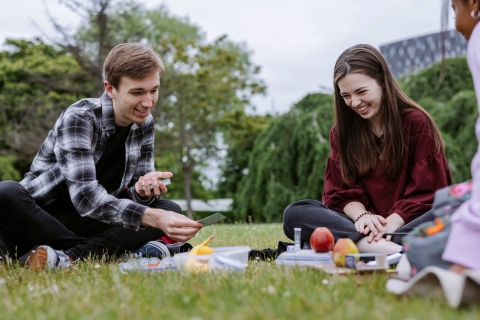
Main navigation - Library
Secondary Menu - Library
Secondary menu
Search suggestions update instantly to match the search query.
Using stress for success

Stress can be fun and useful. No, seriously - it all comes down to how you use it. Knowing how stress changes you lets you make stress work for you.
Channelling your stress
When you feel stressed, try focusing on analytical work, where the intense focus stress gives you is helpful, rather than limiting. Stress narrows your focus onto what is perceived to threaten you and begins a resource-hungry process of analysing things in great detail, rather than relying on past patterns to coast by on autopilot. Knowing this, you can make stress work for you. When stressed, make a list of everything you need to do, prioritise it, then work out the first step for the most important, urgent item. Do that. Give it all your attention. Throw yourself into the task, knowing that everything else will have its turn, and everything will get done eventually. Forget the rest of the list: for now, it does not exist.
When you feel more relaxed, switch to tasks that require you to make connections and think creatively, and when you are tired, move on to tasks you can complete 'on autopilot' without much effort. In this way, you can make the attention-grabbing nature of stress work for you, rather than against you, and adapt your task to suit your mood so you are always doing the work you are best suited for in the moment.
The Times Higher Education supplement has offered some more hints and tips on dealing with pressure at university.
Controlling your stress levels
Getting enough sleep is the best way to manage stress. Decide on regular bedtime and waking times that ensure you get enough regular sleep and create a soothing bedtime routine - a ritual of switching off, unplugging, and returning to ground your body (perhaps literally!) and connect with all parts of yourself before turning everything over to your unconscious, your 'spirit' to deal with while you rest and sleep.
This can be easier said than done when you are busy. I know from experience how tempting it is to forego sleep when experiencing 'flow' - the elusive ease of writing a great assignment that you struggled to get started earlier in the day, but is now just writing itself better than you could have hoped. Still, pulling an 'all-nighter' (working until the small hours to get something done) tends to come at a price - one that you end up paying for physically over the next few days.
As for the rest, you know what to do - take regular breaks, stretch, drink water, eat well, stay connected with others (especially people not going through assessments right now - reminding yourself what relaxed people look like is a godsend), and if you need more support, ask for it! Chaplaincy and the Student Wellbeing Service are here for you, and there are lots of free online resources you can use to help yourself.

Bonus topic - waking up without coffee!
To a great extent, the body also controls the mind. Resting your eyelids and letting your head hang forward, limp and loose, makes you feel sleepy (and is a great preparation for going to bed), while opening your eyes wide and looking upwards at the ceiling (or even better, a light source – just please not the Sun!) sends signals from the muscles around your eyes to your brain, telling it to wake up, making you feel almost instantly energised. Like most behavioural techniques, this sounds laughably simple but works almost immediately.

Add a splash of variety to your assignments and anything else you produce with images, audio, and video resources licensed for you to crop and use in your work, ready for you to download and use.
Almost everything you will find online is heavily protected by copyright, leaving you liable to lawsuits for intellectual property rights infringement if you copy, adapt, build upon or otherwise use them without the rights owners' informed consent, and I know from experience that rights owners are often desperately hard to track down. Images and video clips you find online have often been copied unlawfully several times before you get to them, so even if the person or company who owns the rights would happily license you to use a clip, finding out who to ask is often incredibly hard, so having resources that have been licensed already so you need do nothing but turn up and help yourself is something of a breath of fresh air.
Check out our premium audio-visual resources
Check out all the resources available to everyone on the Library website under Using Resources > Audio Visual Resources. Animation, illustration and a few other students have access to even more special resources like the Rhino House animation studio but these resources on the Library website are available for absolutely everyone and are good for most things.
Looking for something else?
There are a number of websites offering free and open source licensed still images and audio tracks beyond our premium subscription resources, which is handy to know if you are just graduating into a creative field. Here's a few of my favourites.
Free image sites
-
Open Spaces Society (images of landscapes and rural life)
Free audio sites

